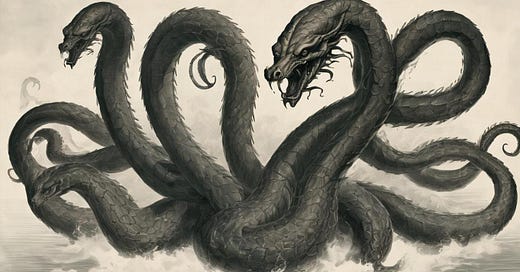*written in 2019*
Lately, I’ve been noticing that maybe the most secure moment of my day is the thirty minutes after I wake up, which I spend making my wife’s coffee and cleaning the kitchen from the night before. On certain, really bad days, this half-hour might even be the most enjoyable.
I find this more than a bit curious given how much I hated doing dishes as a kid. Any chore was torture, in fact, not because of the work involved but specifically because it prevented me from doing what I really wanted to be doing, which was playing. Thus work came to represent a competing state of existence: it was whatever wasn’t play.
How is it possible, in the course of my development from child to man, that I went from hating the dishes to loving them?
If we divide work between need to get done and nice to have done, we can call the former necessities and the latter niceties. The dishes fall into the former category for me, and it is because of this that I find them existentially relieving. In other words, I don’t have to wonder if I should do them. Sure, the world would not come to an end if I didn’t, but eventually they do need to be cleaned, so any procrastination now means the same amount of work later. And I’m waiting for the coffee to brew anyway, so might as well.
In retrospect, isn’t there is a great deal of comfort in having someone else tell you when and when not to work? Doesn’t it allow our play to be—free? When we were young, our caretakers would take care of this: we’d play until they told us to stop. As we grew up, we increasingly began to internalize a work ethic as one of the many components of maturity. We developed the ability, which became almost a tick, to stop ourselves. Now, I cannot play without worrying that I should be working. Work is always at the back of my mind. Doesn’t this mean, among other things, that I have failed my child self? He would see me as pathetic now; washed. Wouldn’t he?
It’s true that I’ve transitioned from a straight-ahead animal, one who enjoyed what human beings enjoy, to a more roundabout version who prefers avoiding what human beings fear. I am talking specifically about existential anxiety or angst, which asks again and again: What should I do?—not only now, but with my time in general and my life as a whole? Eventually work takes priority over play because only while working—specifically, on necessities—do I escape these nagging questions about whether my time is being spent judiciously. Yes it is, I am able to reassure myself, because this task is necessary. That is how existential anxiety weathers a soul over the long years of mental life.
What a sad state of affairs; what a broken existence the memory of a child looks down upon. You know, I am beginning to think our culture’s focus on time management— to ask whether we are spending it correctly—is a horrible question to ask. I would rather sort of bump along without ever considering it. Because how can we answer that question? Seriously, how do we answer it?
Two final points I’d like to make. First, I seem to enjoy play more when other people are participating in it. I believe this has to do with some combination of a) other people help me escape my internal monologue, and b) if other people are doing it, maybe it’s okay for me to do it, too (i.e., well, they’re not working, either, so—).
Second, my own existential pressure is greatest around the distinction between niceties and play. That’s the fault line where earthquakes occur. Working on necessities feels like putting money in the bank, so to speak, to be used at a later time when I’ll presumably know what to do with it (not that I ever do). Things that would be nice to get done, though—like re-painting the guest room or calling a plumber about the water pressure—are not as directly rewarding. Their lack of urgency robs me of assurance. Should I put it off until later and play now? Or just get it out of the way?
Has anyone else found these tasks, though, to be much like the Hydra: cut one head off, and two more appear? If only I knew what the corollary was to burning their stumps.



